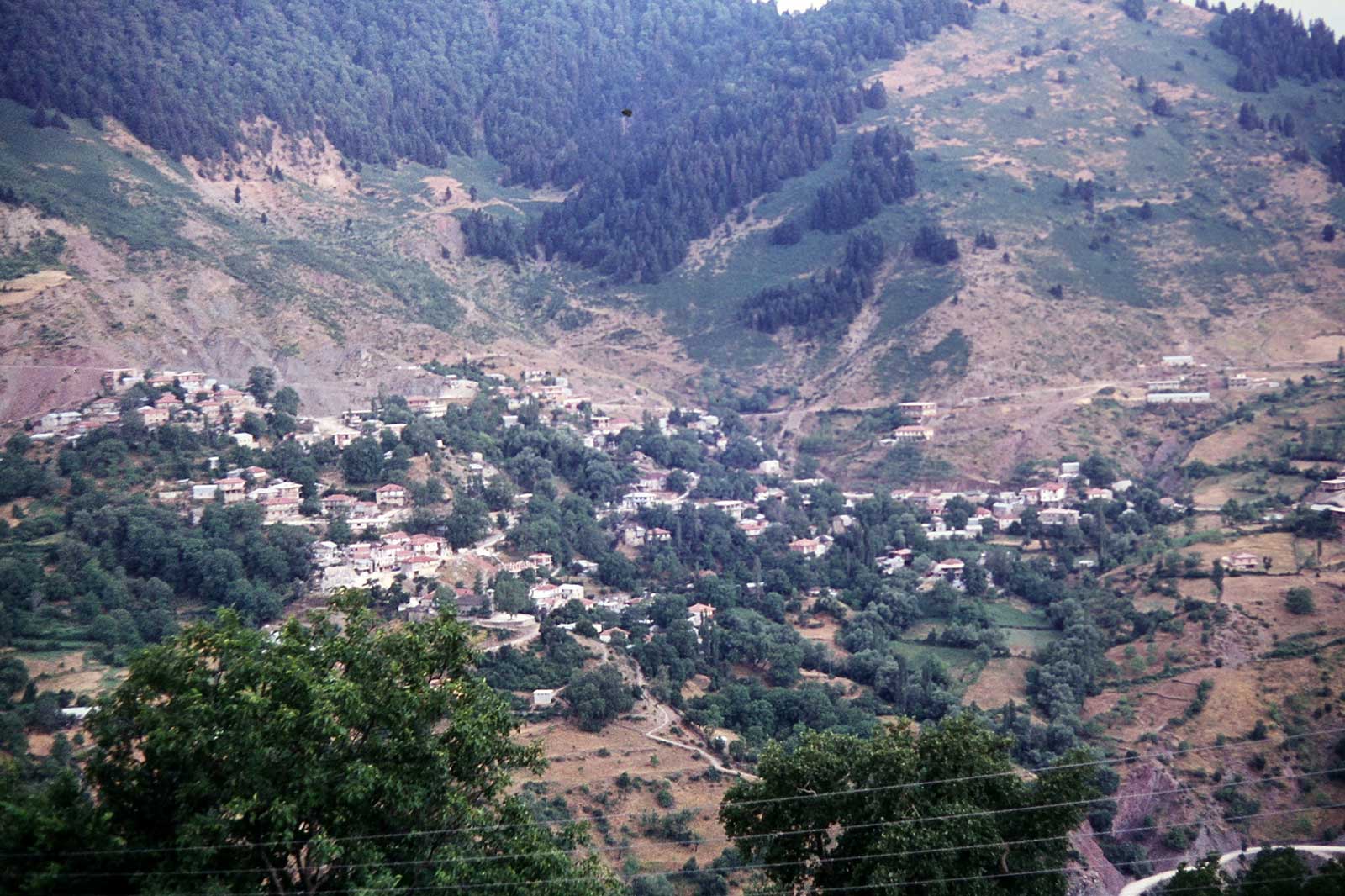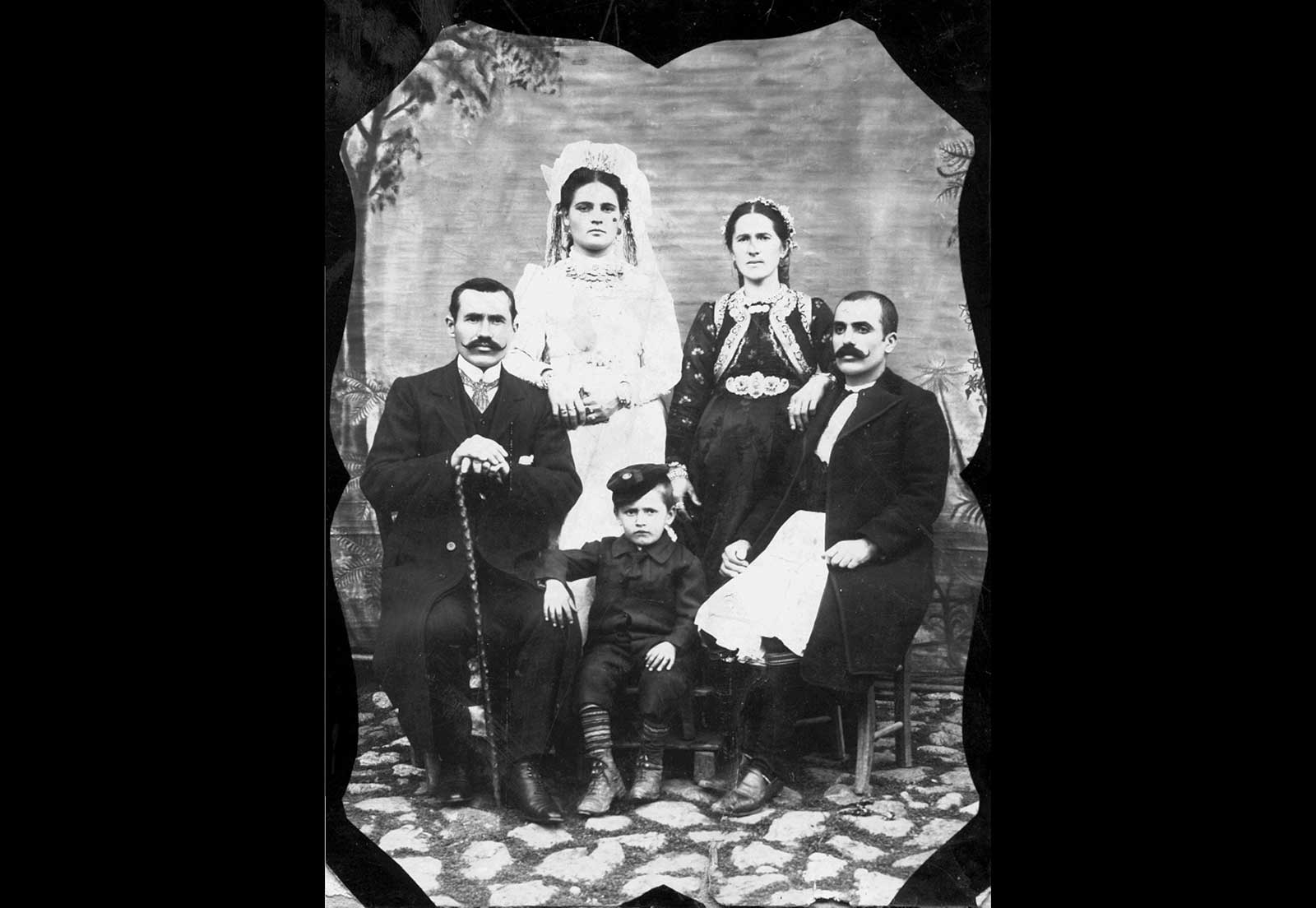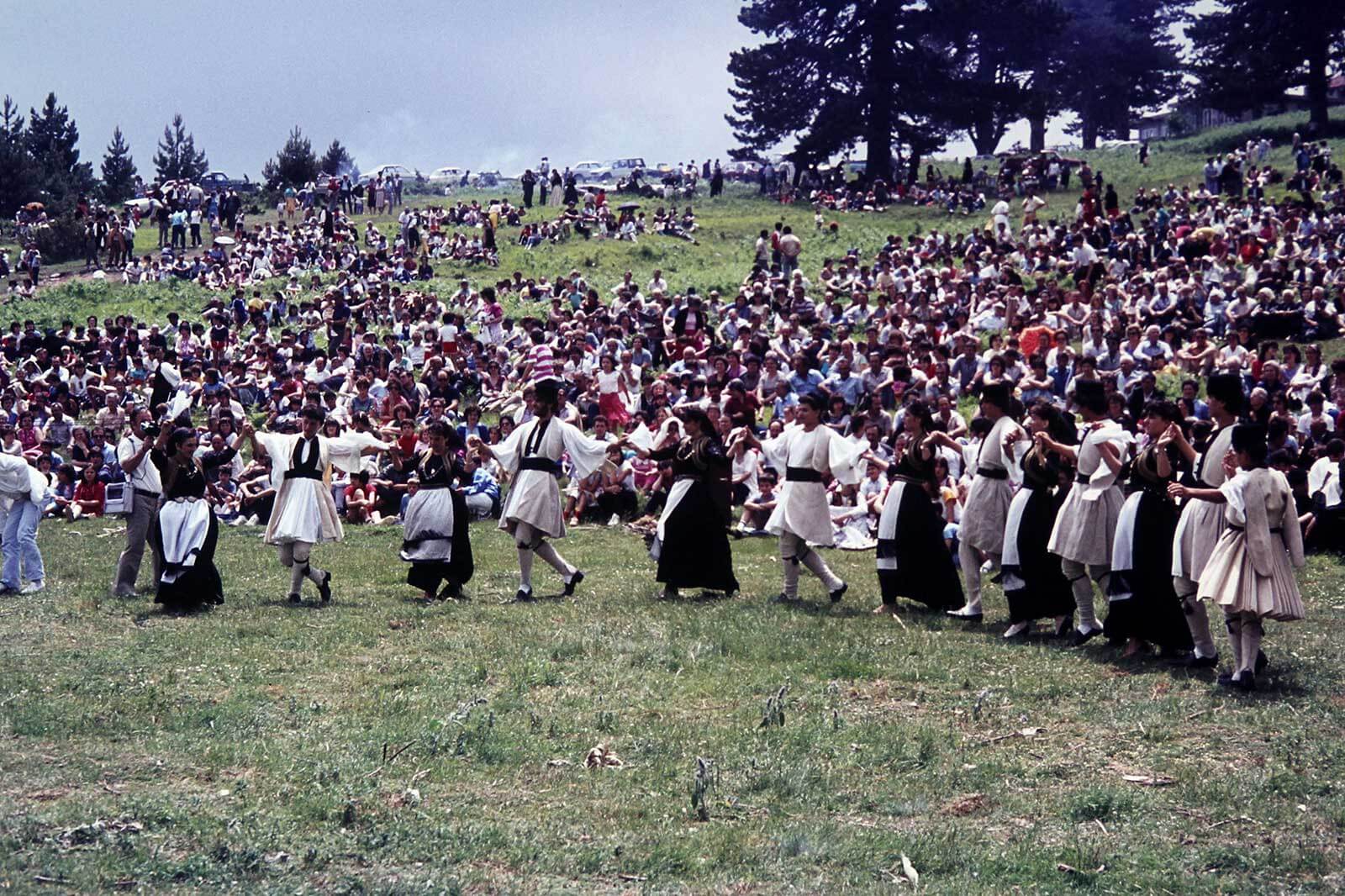Did You Know What Other People Say about Us?
“One of the southernmost Vlach settlements in the Pindhos, [Kallarites] was a veritable El Dorado until the close of the last century. Fame and fortune were based on its specialization in gold- and silver-smithing, and even today the smiths of Ioannina are mostly of Kallaritiote descent as is Bulgari, one of the world’s most expensive ...
Read More →
The Survival of Vlach in Anilio
Of all the Vlach villages I have visited in the Balkans my favorite is Anilio, situated just south of Metsovo, the main Vlach town of Greece in the heart of the Pindus Mountains. Anilio was the first Vlach village I visited, and the one in which I have the most friends, although it is not ...
Read More →
Book Review: Paravulii, by Nicolae Batzaria
Paravulii, by Nicolae Batzaria. Editura Cartea Aromana, 1989. $18., paperback. We Aromanians have a very small body of literature, most of which appeared under the auspices of the short-lived Rumanian nationalist movement (1860-1945). If I had to pick one out of this handful of writers to reprint in 1989, it would be Nicu Batzaria, for ...
Read More →
Cultural Forum: The Women of Nizhopoli
Our community represents a golden opportunity for oral history. Not only do we preserve some of the language and customs that have been lost in the old country over the last 75-100 years, but we also have recorded the history of the immigrant experience in America. Here is just one example, a song that used ...
Read More →
Did You Know What What Other People Have to Say about Us?
“We lodged at an inn kept by a Vlah, who, as I was such a rare bird, most kindly invited me to visit his private house. And all his family in their best — the ladies dressed alla Turka — received me with great hospitality, and the very strongest rakia it has ever been my fate to sample. Marko ...
Read More →
Without Anger or Bias
“Sine ira ac studio.” Without anger or bias. These are the words of the great Roman historian Tacitus, although his claim to have written impartially and without bitterness has been doubted by many who have read his dry but savage accounts of early imperial Rome. In writing the history of the Vlachs I did try to ...
Read More →
Did You Know What Other People Have to Say about Us?
“Several Roman legions were constantly quartered in these [Thracian] provinces, and numerous Roman colonies were founded in them. Roman veterans settled in the country, and young Thracians departed annually as recruits to distant legions. The Latin language appears to have amalgamated more readily with the Thracian than with the Greek. We are informed by a ...
Read More →
Book Review: The Call of the Earth, by Evangelos Averoff-Tossizza
The Call of the Earth, a novel by Evangelos Averoff-Tossizza. Translated by Andre Michalopoulos. Published in 1981 by Caratzas Brothers, New Rochelle, NY. Hardcover, 305 pages, $11.95. Although this book is explicitly called a novel, it is said by its author to be based in part on real events, and to factually describe these events. ...
Read More →
Religion, Birth, and Death in Baieasa
Greek Orthodox was the religion of Baieasa. The sign of the cross is made with the right hand and with three fingers, first touching the forehead, then the stomach, then the right breast, and then the left. I believe that the people of our town were very religious—especially the women. The reason for this was ...
Read More →
Did You Know What Other People Have to Say about Us?
Like any other ethnic community, we tend to hear only one side of our story from within our own group. Yet, over the centuries, many people have become acquainted with the Aromanians and have had things to say about them, and even many of our own people have a view of who we are quite ...
Read More →
Resurrecting Aromanian Culture
Whom are we kidding when we speak of preserving Aromanian culture for posterity? There are two ways to preserve a culture for the future: alive, in schools, factories, mass media, government, trade, science, literature, and art; and dead, in a history book or a hermetically-sealed museum display of old colorful costumes. When was the last time you ...
Read More →
Brief Reviews
The Houses of Belgrade, a novel by Borislav Pekic. Translated by Bernard Johnson. Published in 1978 by Harcourt Brace Jovanovich, New York & London. Hardcover, 212 pages, $9.95. The bumbling protagonist of this witty novel is a once-wealthy old Aromanian gentleman and landlord in Belgrade, Arsenie Negovan. It is June 1968; Arsenie is 77 years ...
Read More →
Cultural Forum: History and Folk-songs
Though folk-songs are sometimes used as sources of historical information, they are not always reliable and should be balanced by some other historical information about the period they deal with. This poses a problem for us, in that we Aromanians do not have much of a written historical record in comparison with other peoples. We ...
Read More →
The Panagire, as It Was Celebrated in Baiesa
The grand social event in Baieasa, as in all Vlach villages, was the panagire, on the day of the Assumption, celebrated beginning on August 15th of each year. This was a celebration involving much pomp and color that lasted several days and preparations for it began months ahead. The house was scrubbed clean, food and goodies ...
Read More →
A Letter to the Editor & A Reply
A Letter to the Editor Living as an American of Macedonian descent for 52 years may not be considered by some as a scholarly approach for my response, but it is the source of my reactions and I would like to share my opinion with you. My parents may have been new to this country, ...
Read More →
Book Review: The Vlachs: The History of a Balkan People, by Tom J. Winnifrith.
New York: St. Martin’s Press, 1987. Hardcover, 180 pages, $37.50. Whatever the merits and faults of this book, it could not have come at a better time: We Aromanians are on the verge of extinction yet we are hardly doing a thing to prevent our demise. Until very recently, even our own leaders have been ...
Read More →
Did You Know?
All Romance, Greek, Germanic (including English) and Slavic languages are descended from the same ancestral language, IndoªEuropean, which is thought to have been spoken between the Vistula and Elbe Rivers in Northeastern Europe 5,000 years ago. When the Turkish Sultan Mohammed captured Constantinople in 1453, ending the Byzantine Empire, he was assisted by a Vlach ...
Read More →
Our Diaspora in Transition: Some Views on Culture, Language, and Change
I have lived in the Vlach villages of Greece for each of the past 12 summers, a testimony to my love for our culture and language. Following as closely as possible the travels of Alan Wace and Maurice Thompson in The Nomads of the Balkans, I have visited and come to know over 80 Vlach villages ...
Read More →
What’s In a Name?
We are known by an almost incredible number of names, and this has caused much confusion over the years. Most of these names were given to us by other people. Our own people have two ways of pronouncing our name for ourselves: Roughly half of them, especially in the northern regions, call themselves Rumani, while the other ...
Read More →
Did You Know?
The late Patriarch of Constantinople Athenagoras was an Aromanian who happily spoke the language at home. The number of Aromanians was estimated at the turn of the century to be from 350,000 to 600,000; current estimates for Greece and Yugoslavia give about 120,000 total, while figures for Albania and Bulgaria are not even available. Several ...
Read More →




